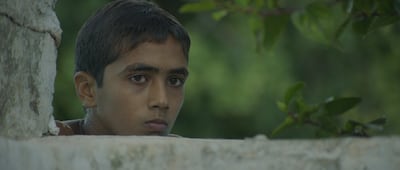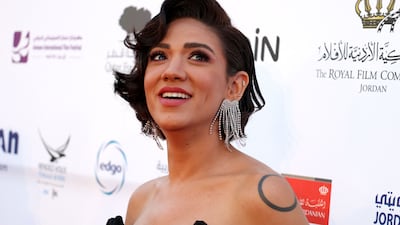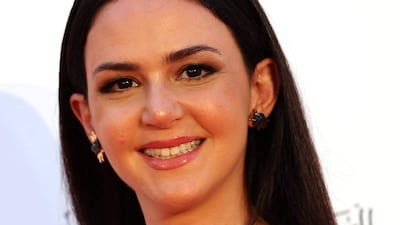Tunisian filmmaker Anis Lassoued’s film A Second Life is replete with delicate, symbolic contrasts that give this contemporary tragedy a mythical and timeless flair.
The film is ensconced in the perspective of a boy aged 12 who goes by the name Gadeha, or "flame" in Arabic.
The moniker, which is also the film’s Arabic title, was given to him by his father, who left for Italy years ago, embarking on a perilous sea voyage that many take while illegally immigrating to Europe. That was the last the young Gadeha had heard from his father.
As such, the sea has always been a representation of longing for the boy, who spends most of his time on the beach with his friends, pilfering phones and catcalling passers-by.
That is, until he is involved in a car accident.
Warning: spoilers ahead.

Unable to afford his medical bills, Gadeha’s mother, Borkana, finds help from a family of do-gooders, who also have a son in the hospital seeking treatment for a chronic kidney disease.
Gadeha soon wakes up to find that the family has not only covered his medical expenses, but have also offered his mother, sister and him a house to live in. The family also proposes enrolling Gadeha in an upscale private French school, the same attended by their own son.
Gadeha becomes uneasy and suspicious. He can’t shake the feeling that something is terribly amiss, despite the benevolence of his hosts. Meanwhile, a friendship develops between Gadeha and the family’s son, Ousamma, who is recovering from a kidney transplant.
It doesn’t take long for Gadeha to figure out what has happened, as he discovers his own missing kidney and how his mother bartered his organ for a new, improved life.
The pain of his estrangement from his father, and his mother's betrayal, drives the boy away from both his family and Ousamma, and towards the sea. From then on, the tension in the film steadily rises as one tragedy inflicts another, in a series of events that resolve on an emblematic note.
A Second Life producer and actress Chema Ben Chaabene, who wrote the script along with Lassoued, said much of the film is dependent on the characters of the children, particularly Gadeha, and the team spent a long time looking for the right person to play the titular role before casting Yassine Tormsi.
“We began working on the script in 2016 and, after casting Yassine, spent a period of six months with him preparing for the role,” Ben Chaabene said, during a discussion at the Amman International Film Festival, where the film screened last week. “We then had a further rehearsal process, where he trained with theatre actors, young and experienced.”
While most of the cast come from theatre backgrounds in Tunisia, Ben Chaabene said the children featured in the film, as well as Borkana, are all portrayed by debut actors.
“This isn’t the first time Anis is working with children. He previously worked with children in his short films and documentary. He treats them as if they are experienced actors, even if it is their first time acting.”
While organ trade has an instigating role in A Second Life, Ben Chaabene said it merely served as a premise to explore the effects of a parent’s absence. It was incorporated as a plot point after news reports began circulating about children being kidnapped in the rural areas of Tunisia.
“Their kidneys would be harvested and then they’d be returned with an envelope of money,” Ben Chaabene said. “It was shocking. Then there were those who were forced to sell their children’s kidneys due to their dire financial situation. The character of Borkana was inspired by this.
“The weight of that decision is not just on Borkana,” she said. “Even the other side, the parents that took the kidney for their son, even they were wrecked by guilt. They stole this organ from a young boy. They were feeling guilty but were facing the death of their son. It’s quite the struggle.”
Another news story also inspired one of the most crucial scenes in the film: as Gadeha becomes aware of the deal his mother made with the family, he runs back towards the sea, trying to get close to his father and soon falls unconscious face down in the sand.
The shot was inspired by the picture of Alan Kurdi, the Syrian boy aged 2 who drowned in 2015 in the Mediterranean sea as he and his family were trying to reach Europe. Kurdi’s image quickly went viral and became a symbol of the wider refugee crisis.
“The scene in the film reflects upon that,” Ben Chaabene said. “Of being a child on the margins of life and not having a say in your fate.”
Scroll through the gallery below to see more of Amman International Film Festival 2022.












